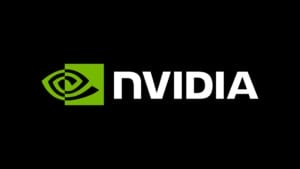How are Big Tech firms re-opening their offices and getting back to work?
There was rampant speculation that one of the long-term implications would be the end of the office

The highly contagious Delta variant of the coronavirus is throwing a wrench in the country’s re-opening preparations and overall hot vax summer sentiments, as cases of the virus are on the rise. As people return to work, government agencies and companies are modifying — and in some cases enforcing — vaccination mandates.
Until recently, Twitter was the only major internet firm that required workers to get vaccinated before working from its headquarters.
In an email to workers and on a public-facing blog, Google CEO Sundar Pichai stated that Googlers would need to have their COVID-19 vaccinations to work from Google offices. A few hours later, Facebook made the same statement.
Some of Google’s offices are already open for employees who wish to come in on their own. In the same letter, Pichai stated that the company’s “voluntary work-from-home policy” will be extended until October 18. In other words, by October 18, Google employees will be returning to work — vaccinated if they want to get in.
The pandemic’s past 15 months have been a rollercoaster of closures, reopenings, and closures again. Vaccination pushes vaccine apprehension, virus declines, and spikes that reappear. Like the rest of us, big IT companies have set rules based on the present situation and have had to evaluate them.
Unfortunately, the most up-to-date public health data did not appear to be the primary consideration in these judgments. Instead, getting vaccinated became a partisan issue as some conservatives confused the public health initiative with a matter of personal liberty. Simultaneously, internet corporations accused of (unproven) anti-conservative prejudice attempt not to irritate Republican users and politicians, all while antitrust legislation looms.
Employee vaccination policies, according to the corporations, are based on health and science. But there’s always more at play when it comes to popular opinion of Big Tech. That’s why Google and Facebook’s employee vaccination policies are a more significant concern than they should be: it’s putting the firms’ flags on the side of public health, despite political opposition.
Like the virus, health advice, and public opinion evolve, so do tech companies’ policies. Here’s how large IT firms feel about workers returning to work and whether or not they need to get vaccinated.
Google: On July 28, the business changed a previous policy that encouraged but did not require immunizations. “Anyone going to work on our campuses will need to be vaccinated,” according to a Google blog post. The program will start in the United States and then spread to other countries as vaccinations become more readily available. Exemptions for health and “other protected reasons” may be granted to some employees.
Facebook: The social media behemoth released a press release on Wednesday outlining new immunization requirements for employees in the United States. Meanwhile, one of the most potent sources of anti-vaccine disinformation is Facebook.
Amazon: According to an email from Amazon, the firm does not require employees to be vaccinated. In addition, vaccinated personnel is not required to wear masks (though they may if they choose), but unvaccinated staff must do so.
Twitter: Twitter has made a permanent policy of allowing employees to work from home on a volunteer basis. However, for individuals who want to return to work, Twitter re-opened part of its operations in May, requiring all new workers to get vaccinated. Recently, the firm has re-closed its offices. So, for the time being, the issue and vaccination policy are moot.
Apple: Apple CEO Tim Cook allegedly told CNBC that the firm hasn’t decided on its vaccination policy for employees. That’s because corporate headquarters haven’t even opened yet, and the re-opening date has been pushed back until at least October.
Netflix: The streaming giant joined in on the vaccination announcements fun. In specific ways, yes. According to Deadline, Netflix will demand vaccines for “Zone A employees” on film and television productions. This covers both performers and the staff who work directly with them on site. It’s unclear if the restriction will apply to Netflix’s corporate headquarters.
















